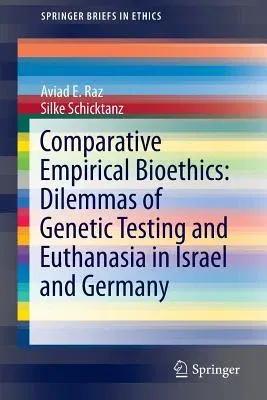Aviad E Raz
(Author)Comparative Empirical Bioethics: Dilemmas of Genetic Testing and Euthanasia in Israel and Germany (2016)Paperback - 2016, 10 May 2016

Qty
1
Turbo
Ships in 2 - 3 days
In Stock
Free Delivery
Cash on Delivery
15 Days
Free Returns
Secure Checkout
Part of Series
Springerbriefs in Ethics
Print Length
121 pages
Language
English
Publisher
Springer
Date Published
10 May 2016
ISBN-10
3319327313
ISBN-13
9783319327310
Description
Product Details
Authors:
Book Edition:
2016
Book Format:
Paperback
Country of Origin:
NL
Date Published:
10 May 2016
Dimensions:
23.39 x
15.6 x
0.74 cm
ISBN-10:
3319327313
ISBN-13:
9783319327310
Language:
English
Location:
Cham
Pages:
121
Publisher:
Series:
Weight:
199.58 gm

